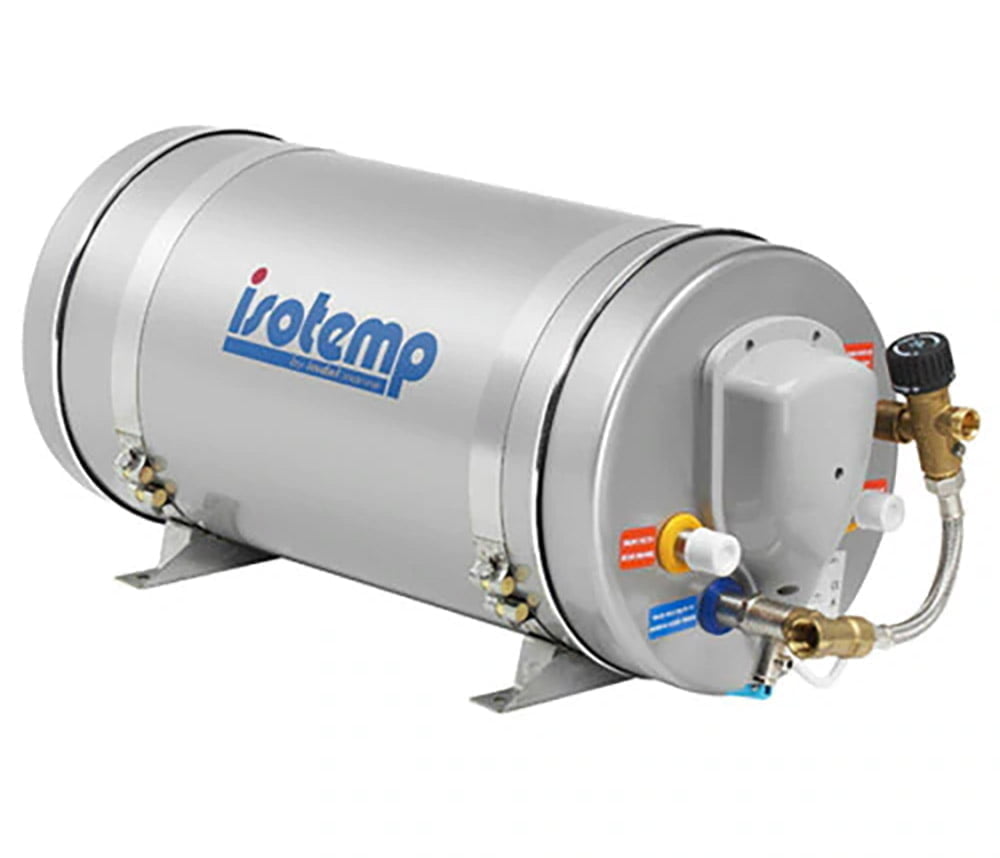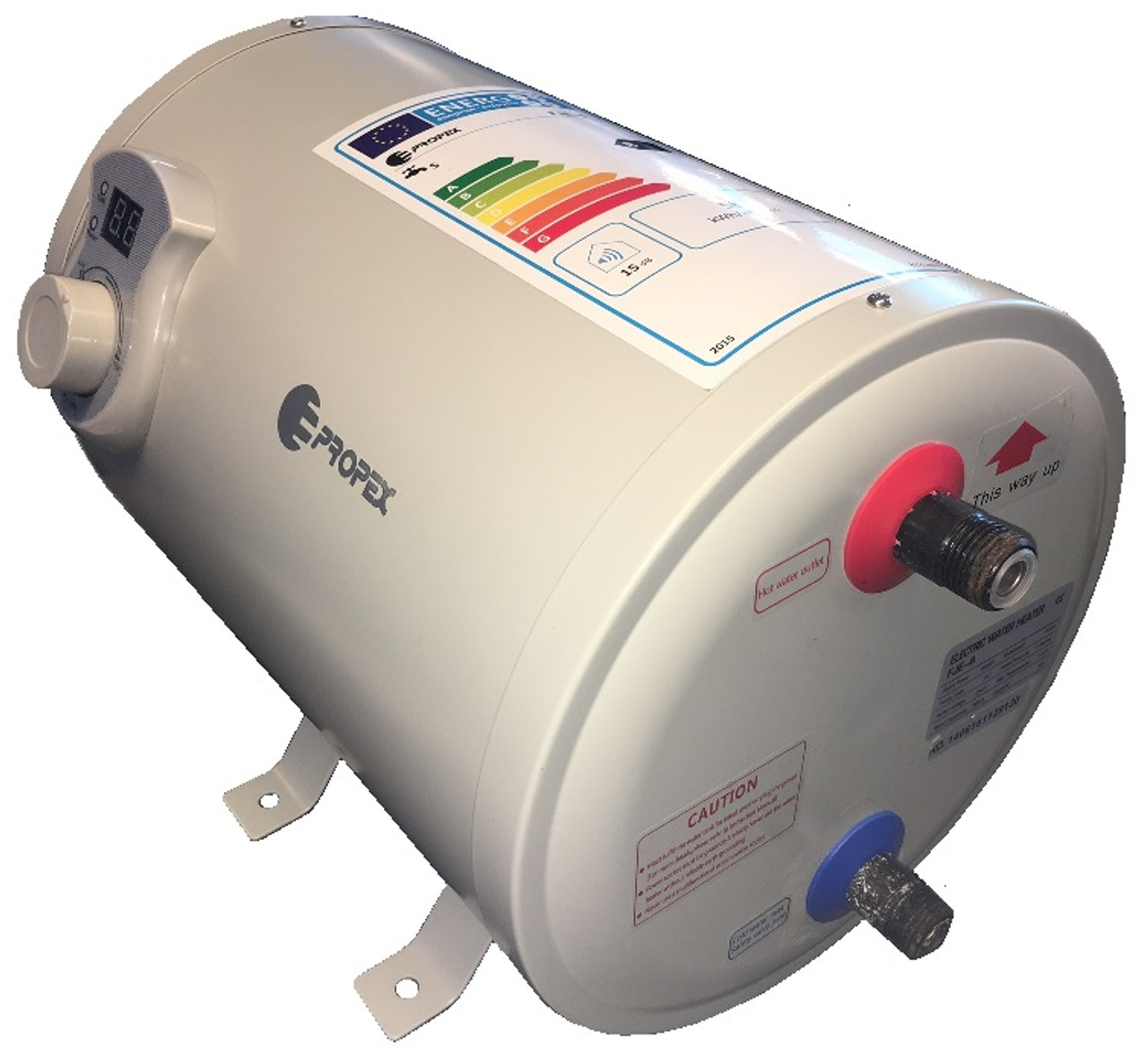Electric Hot Water Heaters for Campers: An Essential Guide to Warmth and Comfort
Electric hot water heater for camper – In the realm of camping, where comfort and convenience intertwine, the electric hot water heater emerges as an indispensable amenity. Dive into the depths of this comprehensive guide to unravel the intricacies of electric hot water heaters for campers, empowering you to make informed decisions and embark on unforgettable adventures with a touch of warmth and luxury.
From exploring various types and their unique advantages to navigating installation considerations and delving into maintenance and troubleshooting, this guide will equip you with the knowledge and insights you need to ensure a seamless and enjoyable camping experience.
Types of Electric Hot Water Heaters for Campers
Electric hot water heaters are a convenient and efficient way to get hot water in your camper. They’re easy to install and operate, and they can provide you with hot water for showers, dishes, and other needs.
There are three main types of electric hot water heaters for campers:
- Tank-type heatersare the most common type of electric hot water heater. They have a storage tank that holds the heated water. Tank-type heaters are relatively inexpensive and easy to install, but they can be slow to heat up and they can run out of hot water if you use it too quickly.
- Tankless heatersheat water on demand, so they don’t have a storage tank. Tankless heaters are more expensive than tank-type heaters, but they’re more efficient and they can provide you with an endless supply of hot water.
- Instantaneous heatersare similar to tankless heaters, but they’re smaller and they can be mounted directly to your sink or shower.
Instantaneous heaters are the most expensive type of electric hot water heater, but they’re also the most efficient and they can provide you with instant hot water.
The best type of electric hot water heater for your camper depends on your needs and budget. If you’re looking for a low-cost and easy-to-install option, a tank-type heater is a good choice. If you’re looking for a more efficient and powerful option, a tankless or instantaneous heater is a better choice.
Installation Considerations
Installing an electric hot water heater in a camper requires careful planning and execution. Several factors must be taken into account to ensure a safe and efficient installation. These include space requirements, electrical connections, and plumbing considerations.
Space Requirements
The first step is to determine the appropriate size and location for the water heater. Electric water heaters come in various sizes, so it’s essential to choose one that fits comfortably within the available space. Consider the dimensions of the unit, as well as the clearance needed for proper ventilation and maintenance.
Electrical Connections
Electrical connections are crucial for the safe operation of the water heater. The unit must be connected to a dedicated circuit with sufficient amperage to handle the load. The electrical wiring should be done by a qualified electrician to ensure it meets all safety codes and regulations.
Plumbing Considerations, Electric hot water heater for camper
The water heater must be connected to the camper’s plumbing system to supply hot water to the fixtures. This involves connecting the cold water inlet to the water supply and the hot water outlet to the fixtures. Proper plumbing techniques, such as using approved materials and sealing all connections, are essential to prevent leaks and ensure the system’s integrity.
Step-by-Step Installation Guide
Once the space, electrical, and plumbing considerations have been addressed, you can proceed with the installation. Here’s a general step-by-step guide:
- Disconnect the camper’s electrical and water supply.
- Remove the old water heater (if applicable).
- Position the new water heater in the desired location and secure it using appropriate mounting hardware.
- Connect the cold water inlet to the water supply.
- Connect the hot water outlet to the fixtures.
- Connect the electrical wiring to the dedicated circuit.
- Restore the camper’s electrical and water supply.
- Check for leaks and ensure the water heater is operating correctly.
By following these steps and carefully considering the installation factors, you can safely and efficiently install an electric hot water heater in your camper.
Maintenance and Troubleshooting

Regular maintenance is crucial for the longevity and efficiency of your electric hot water heater in your camper. Follow these tips to ensure optimal performance:
Drain and Flush
Drain and flush your water heater tank annually or as recommended by the manufacturer. This removes sediment and mineral buildup that can reduce its efficiency and lifespan.
Replace Anode Rod
The anode rod attracts corrosion, protecting the tank from rust. Replace it every 2-3 years to prevent tank damage.
Troubleshooting
If you encounter issues with your electric hot water heater, here are some troubleshooting tips:
No Hot Water
Check if the water heater is turned on and the circuit breaker is not tripped. Ensure the thermostat is set correctly and the heating element is not burned out.
Leaks
Inspect the tank for leaks and tighten any loose connections. If the leak persists, it may indicate a cracked tank or a faulty pressure relief valve.
Strange Noises
Noises like banging or rumbling may indicate sediment buildup. Drain and flush the tank to resolve this. Whistling sounds can indicate air trapped in the system, which can be released by opening a hot water faucet.
Safety Precautions
Ensuring the safe operation of an electric hot water heater in a camper is paramount. Here are some essential precautions to follow:
Overloading the Electrical System:Avoid overloading the camper’s electrical system by using appliances and devices that draw excessive power. Overloading can lead to electrical fires or damage to the heater.
Carbon Monoxide Detector:Install a carbon monoxide detector in the camper. Carbon monoxide is a colorless, odorless gas that can be fatal if inhaled. A detector will alert you to the presence of carbon monoxide and allow you to take appropriate action.
Regular Inspections and Maintenance:Perform regular inspections of the hot water heater and its components. Check for leaks, corrosion, or damage. Clean the heating element and flush the tank to prevent sediment buildup. Follow the manufacturer’s recommended maintenance schedule to ensure optimal performance and longevity.
Electrical Safety
- Use a surge protector to protect the hot water heater from voltage spikes.
- Ensure the electrical wiring is properly sized and in good condition.
- Do not operate the hot water heater if there are any electrical problems.
Water Safety
- Do not fill the hot water tank beyond its capacity.
- Drain the hot water tank when not in use for extended periods.
- Check the water pressure and adjust it to the manufacturer’s specifications.
Carbon Monoxide Safety
- Keep the camper well-ventilated when using the hot water heater.
- Never operate the hot water heater with the windows or vents closed.
- If you experience any symptoms of carbon monoxide poisoning, such as headache, nausea, or dizziness, evacuate the camper immediately and seek medical attention.
Comparison with Other Water Heating Options
Electric hot water heaters offer several advantages over other water heating options for campers. They are relatively inexpensive to purchase and install, and they are very efficient, using less energy to heat water than propane or solar water heaters. Electric hot water heaters are also very reliable, and they require minimal maintenance.
However, electric hot water heaters also have some disadvantages. They can be slow to heat water, and they require a reliable source of electricity to operate. If you are camping in an area without electricity, you will not be able to use an electric hot water heater.
Propane Water Heaters
Propane water heaters are a popular choice for campers because they are relatively inexpensive to purchase and install, and they can heat water quickly. However, propane water heaters are not as efficient as electric water heaters, and they require a constant supply of propane to operate.
Propane water heaters can also be dangerous if they are not properly installed and maintained.
Solar Water Heaters
Solar water heaters are a great option for campers who want to save money on energy costs. Solar water heaters use the sun’s energy to heat water, so they do not require any electricity or propane to operate. However, solar water heaters can be expensive to purchase and install, and they are not as efficient as electric or propane water heaters.
Solar water heaters also require a lot of sunlight to operate, so they may not be a good option for campers who are camping in shady areas.
Final Wrap-Up

As you venture into the great outdoors with your trusty camper, may this guide serve as your steadfast companion, empowering you to harness the benefits of electric hot water heaters. Embrace the warmth and comfort they provide, and let the memories forged around crackling campfires and soothing showers under the starry sky become cherished moments that last a lifetime.
Answers to Common Questions: Electric Hot Water Heater For Camper
What are the different types of electric hot water heaters for campers?
Electric hot water heaters for campers primarily come in two types: tank-type and tankless. Tank-type heaters store hot water in a reservoir, while tankless heaters heat water on demand.
What factors should I consider when choosing an electric hot water heater for my camper?
Consider your camper’s space, electrical capacity, water usage, and desired level of hot water availability. Tank-type heaters offer a larger hot water capacity but require more space, while tankless heaters are more compact but may have a lower flow rate.
How do I install an electric hot water heater in my camper?
Installing an electric hot water heater in a camper requires careful planning and execution. Ensure you have adequate electrical wiring, plumbing connections, and ventilation. Refer to the manufacturer’s instructions for specific installation steps.
What are some tips for maintaining an electric hot water heater in my camper?
Regular maintenance is crucial for the longevity of your electric hot water heater. Drain and flush the tank periodically to remove sediment, replace the anode rod as recommended, and inspect for leaks or other issues.
How can I improve the energy efficiency of my electric hot water heater in my camper?
Insulate the hot water tank and pipes to minimize heat loss. Use low-flow showerheads and faucets to reduce water consumption. Consider installing a timer to limit heater operation during periods of low water usage.
Related posts
Recent Posts
- Kritik DPR Memuncak: Saatnya Rekrutmen Politik yang Bersih dan Transparan
- Perkuat Layanan Pembiayaan Kendaraan, BRI Finance Hadir di BRI Consumer Expo 2025
- Mitigasi Banjir Bandang Jangka Panjang Di Ternate, Kementerian Pekerjaan Umum Rencanakan 20 Sabo Dam Di Lereng Gamalama
- Kenapa Toko Harus Punya QRIS? Keuntungan Nyata untuk Bisnis
- KAI dan Yayasan Tarakanita Surabaya Gelar Kampanye Lingkungan di Stasiun Gubeng: “Rel Perjuangan untuk Bumi yang Merdeka”




No Comments